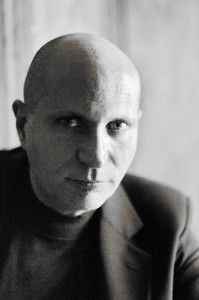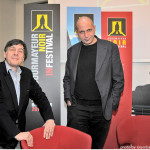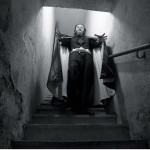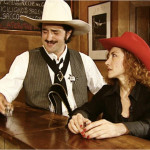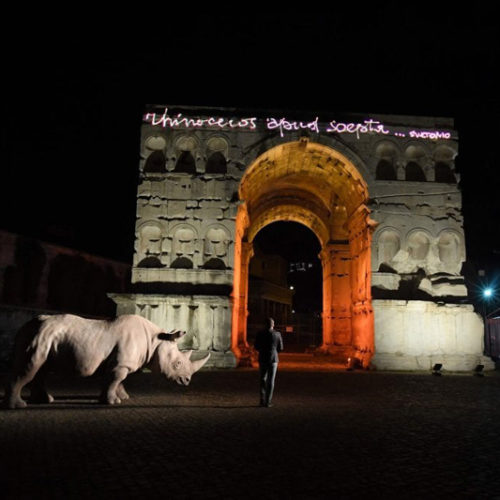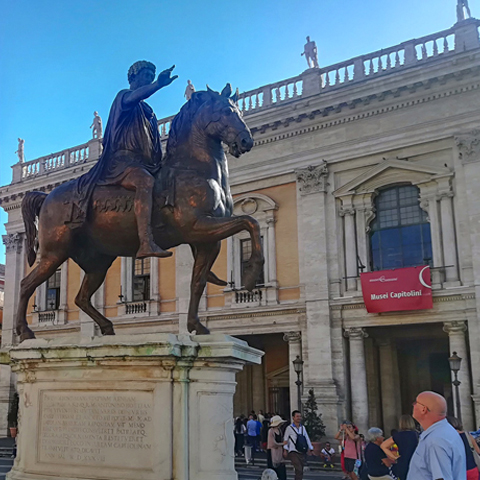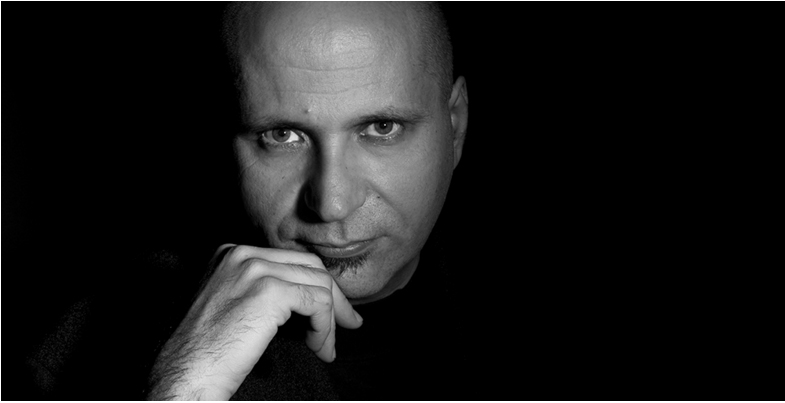
This June, as the summer blockbuster season begins, Francesco Cinquemani’s action thriller, Andron: The Black Labyrinth will be arriving at theaters in America. The cast includes notable figures such as Alec Baldwin, Skin (singer of Skunk Anansie), and Clara Pasieka who recently appeared in David Cronenberg’s film, Maps to the Stars.
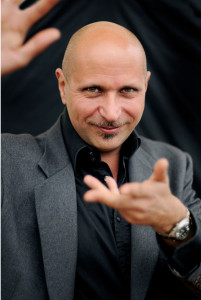 Whenever I think of Alec Baldwin, I think of what might just be the 7 best minutes in film history, when he delivered his razor sharp monologue in David Mamet’s masterpiece, Glengarry Glen Ross. I ask Francesco what it was like to work with such a force of nature. He tells me that Alec’s reputation for being a challenge to work with had preceded him. On the day Alec was expected to arrive on set, Baldwin’s manager took Francesco aside and said, “Remember one thing. If Alec becomes argumentative while on the set, don’t reply. Just run.” But Francesco and Alec hit it off right away. “It was incredible. We ended up working really well together. He has the same sense of humor that I have, really dark. He’s a f…… genius. He’s a really energetic actor. I always considered him great. Now, after working with him, I consider him one of the greatest.”
Whenever I think of Alec Baldwin, I think of what might just be the 7 best minutes in film history, when he delivered his razor sharp monologue in David Mamet’s masterpiece, Glengarry Glen Ross. I ask Francesco what it was like to work with such a force of nature. He tells me that Alec’s reputation for being a challenge to work with had preceded him. On the day Alec was expected to arrive on set, Baldwin’s manager took Francesco aside and said, “Remember one thing. If Alec becomes argumentative while on the set, don’t reply. Just run.” But Francesco and Alec hit it off right away. “It was incredible. We ended up working really well together. He has the same sense of humor that I have, really dark. He’s a f…… genius. He’s a really energetic actor. I always considered him great. Now, after working with him, I consider him one of the greatest.”
Francesco started out as a journalist, eventually rising to managing director of 35mm.it, one of the most important cinema newspapers in Italy from 2000 to 2006. After that he moved into writing for film and television. He would have remained a writer, but tells me, “I became a director because they continued to ruin my stuff. I said, ‘I can ruin it by myself,’ you know? Then, at least I know that I’m responsible for all my problems.”
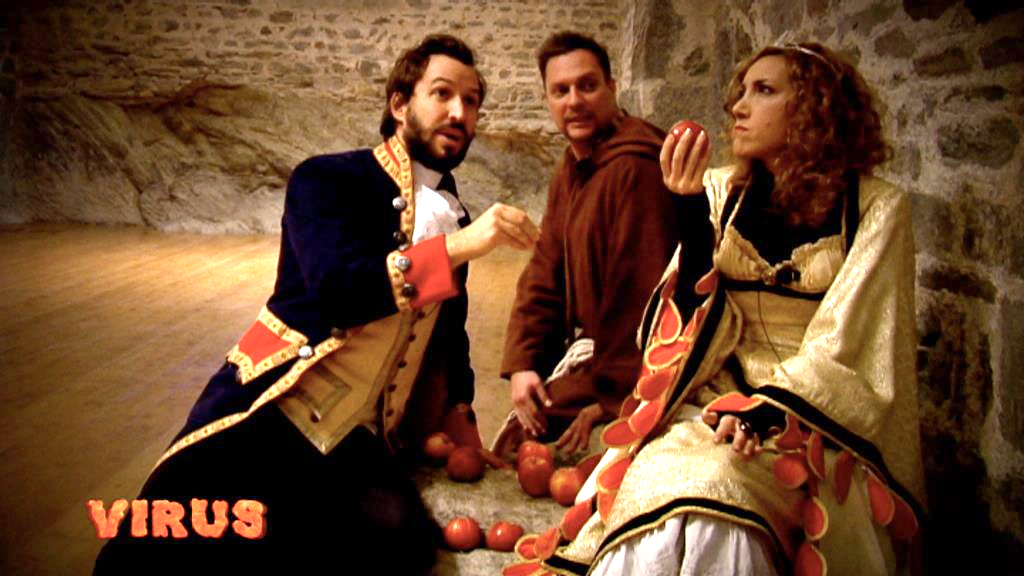 One of Francesco’s early projects was a series on RAI Television called Virus. The open format of the show allowed Francesco to play with a variety of genres and styles. The series went for 60 episodes. Along the way it developed a sort of cult following which attracted big names who wanted to work on the show, even agreeing to work for free, people like Danny DeVito, Zack Efron, Vin Diesel, and Terry Gilliam who is kidnapped by aliens and eventually saved by the Pope.
One of Francesco’s early projects was a series on RAI Television called Virus. The open format of the show allowed Francesco to play with a variety of genres and styles. The series went for 60 episodes. Along the way it developed a sort of cult following which attracted big names who wanted to work on the show, even agreeing to work for free, people like Danny DeVito, Zack Efron, Vin Diesel, and Terry Gilliam who is kidnapped by aliens and eventually saved by the Pope.
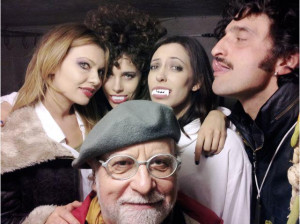 Francesco and I spend some time talking about the wide range of skills a director must have, many of which are under-appreciated. Francesco focuses on the ability to work with an ensemble of actors. “When you work with the actors, you have to level their performances. It’s like directing an orchestra. If the first violin is too loud and all the other instruments are whispering, it’s bad. The greatest actor in the world can be ruined by a bad director.” I am reminded of a line delivered by Michael Fassbender in the starring role of the recent film, Steve Jobs: “I play the orchestra.” Jobs is trying to help his friend and co-founder, Steve Wozniak, understand what it’s like to have the job of always seeing the big picture. Needless to say, it doesn’t go over well with Wozniak. But this is a perfect analogy. The under-appreciated things that contributed to Jobs’ genius are the same for film directors, who must be more than just a creative mind. A good director also needs a strong business sense, along with the ability to manage a budget and stick to a grueling production timeline. It doesn’t sound very romantic; but fail at these things, and the film flops. Francesco tells me how, after the success of Deer Hunter, United Artists gave director Michael Cimino carte blanche for his next film, Heaven’s Gate. Chimino proceeded to nearly bankrupt United Artists because he couldn’t stick to a realistic production timeline. While a normal shooting schedule might produce a few minutes of usable film per day, Cimino was coming up with 10 seconds a day!
Francesco and I spend some time talking about the wide range of skills a director must have, many of which are under-appreciated. Francesco focuses on the ability to work with an ensemble of actors. “When you work with the actors, you have to level their performances. It’s like directing an orchestra. If the first violin is too loud and all the other instruments are whispering, it’s bad. The greatest actor in the world can be ruined by a bad director.” I am reminded of a line delivered by Michael Fassbender in the starring role of the recent film, Steve Jobs: “I play the orchestra.” Jobs is trying to help his friend and co-founder, Steve Wozniak, understand what it’s like to have the job of always seeing the big picture. Needless to say, it doesn’t go over well with Wozniak. But this is a perfect analogy. The under-appreciated things that contributed to Jobs’ genius are the same for film directors, who must be more than just a creative mind. A good director also needs a strong business sense, along with the ability to manage a budget and stick to a grueling production timeline. It doesn’t sound very romantic; but fail at these things, and the film flops. Francesco tells me how, after the success of Deer Hunter, United Artists gave director Michael Cimino carte blanche for his next film, Heaven’s Gate. Chimino proceeded to nearly bankrupt United Artists because he couldn’t stick to a realistic production timeline. While a normal shooting schedule might produce a few minutes of usable film per day, Cimino was coming up with 10 seconds a day!
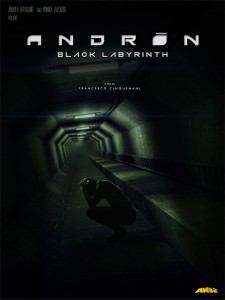 I am reminded of another example, which is chronicled in Jodorowsky’s Dune; a fascinating documentary about what might have been one of the best films in sci-fi history, and how it failed to become anything due to director Alejandro Jodorowsky’s inability to handle the business side of filmmaking. I ask Francesco what it felt like to be responsible for 5 million dollars, the largest budget for a single production that he’d managed to date. He doesn’t flinch when tells me it didn’t feel like a big deal. His time with 35mm.it, and television production taught him how to deal with similar levels of responsibility. I ask about his ability to handle the timeline. He tells me he shot Andron in 21 days. To give some perspective he says, “Usually Sorrentino shoots for 15 weeks. I did it in 4 weeks. I had the same schedule as Whiplash, but that was 5 people and a band. We had 5 major actions scenes, explosions, practical effects, and a lot of stunts.” I’m seriously impressed.
I am reminded of another example, which is chronicled in Jodorowsky’s Dune; a fascinating documentary about what might have been one of the best films in sci-fi history, and how it failed to become anything due to director Alejandro Jodorowsky’s inability to handle the business side of filmmaking. I ask Francesco what it felt like to be responsible for 5 million dollars, the largest budget for a single production that he’d managed to date. He doesn’t flinch when tells me it didn’t feel like a big deal. His time with 35mm.it, and television production taught him how to deal with similar levels of responsibility. I ask about his ability to handle the timeline. He tells me he shot Andron in 21 days. To give some perspective he says, “Usually Sorrentino shoots for 15 weeks. I did it in 4 weeks. I had the same schedule as Whiplash, but that was 5 people and a band. We had 5 major actions scenes, explosions, practical effects, and a lot of stunts.” I’m seriously impressed.
I mention the recent release of Gabriele Mainetti’s They Call Me Jeeg Robot, and speculate about how it may be opening up Europeans to the American style hero-action genre. “I hope so,” Francesco says. He tells me about his love for genre films, especially action and sci-fi, which are much less popular in Italy. “The only genre I don’t really like to do is drama. It is the only thing I really hate, a lot. With drama there is always a crisis, or a love story, you know … with a crisis.” Francesco’s deadpan delivery has me laughing throughout the interview.
I ask about his method. “I used to have a method, now I don’t. I’m kidding.” But in a way he’s not. He tells me about the structure he would use to approach the writing process and how over the years he’s cut away the extraneous parts. Now he doesn’t even write a treatment. “They trust me now. I just tell them the story and they sign the contract.” Again, I’m totally impressed. The power of persuasion is yet another crucial skill a director must have if he or she ever wants a major studio to help them realize their vision.
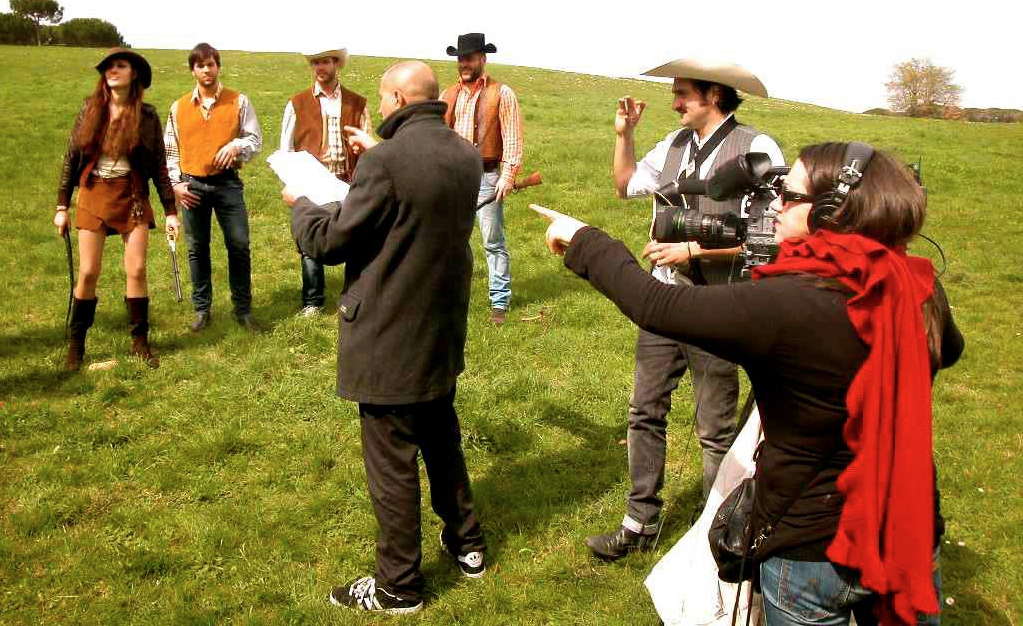
Francesco tells me there is often a loss of energy that occurs when a treatment is turned into a screenplay, so now he just jumps right in to the screenplay. One idiosyncrasy that Francesco has not abandoned is how he starts writing. “The only ritual that I still have is that I never use blank pages. Never. I take an older script, make a copy, start writing at the top and then after a while, delete the old script. The blank page is too much.”
He tells me about some exciting projects currently in the works, but he had to tell me off the record. All I will say is that there is a lot excitement to come from the mind of Francesco Cinquemani. I ask him for the European release date of Andron. He tells me it is yet to be announced. Stay tuned!
